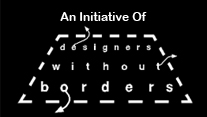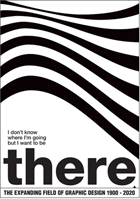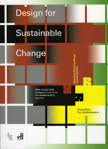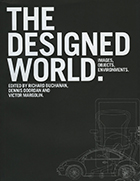David Stairs

Homemade hotplates
Some of the most interesting places in modern day Kampala are the tinsmith’s stalls opposite the Balikuddembe Market. Here sheet metal is daily transformed from dross into useful implements for household chores. The scope of activity is only limited by the workman’s imagination as numbers of boxes and appliances are tinkered together.

Charcoal iron
Here men hammer metal on railroad steel. There others make a variety of domestic vessels. One can find rattraps, funnels, oil lamps, cast aluminum kitchen ladles, hotplates and charcoal irons, or pasis. The latter, on first appearance, do not look safe. Comprised of metal, with a wooden handle, one will not find an Underwriter’s Laboratory seal of testing approval on these devices. Yet, most passersby are not concerned. Vernacular electric irons were once widely available, but the decline in the level of Lake Victoria has resulted in a nationwide power shortage and craftsmen have responded to the market. Those who are connected may welcome relief from the high price of imported appliances that can cost twenty times as much.
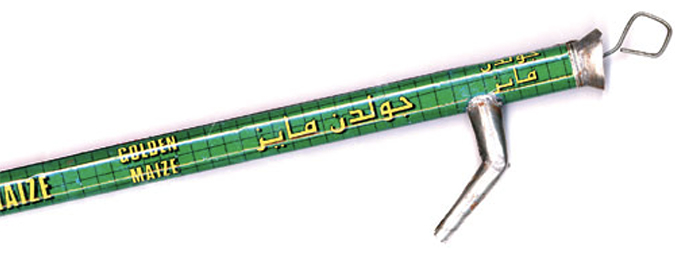
Sheet metal is a valuable commodity and, as in other developing countries, it is recycled in Uganda. The paraffin pump pictured above began its life as a drum of corn oil. An empty can, a pair of tin snips, and a little solder are all that’s needed for its transformation.

Tadooba, or wind-proof kerosene lamp
Such simple means can be applied to a variety of implements, like the paraffin lamp, or tadooba, pictured. It has glass shielding, making it “hurricane proof.” The mbira pictured below was also crafted from recycled sheet metal. With the addition of some hammered steel keys and a wooden tension peg, music issues from an instrument quite different from the usual carved-wood version made for the tourist market.

An especially fantastic example of reverse engineering is popcorn machines. Based upon their Western cinema lobby counterparts, right down to the stenciling, such machines in Uganda are found in most public markets and outdoor places where a small bag of popcorn will cost 100 shillings (about 5 cents).

Reverse-engineered popcorn makers
Another instance of stenciled decoration occurs on the ekyuma, or footlockers, so prevalent in bus and taxi parks. Ugandans like them because they are durable and rat-resistant, and they are required equipment for boarding school pupils. Stenciled with a wide variety of designs, they are suited to fit almost any taste.

Ekyuma, or metal footlockers
Being “on African time” is an adjustment for Westerners accustomed to punctuality and expedience. In Uganda, most people take the clock with a grain of sand, and two hours is an average tardiness for appointments. So it is intriguing that Ugandan craftsmen would invest as much effort as they do into making labor saving devices, time being the primary object of saved labor. And yet, even though you might not want to trade in your Westinghouse or GE appliance for one of these stripped down vernacular models, many would and do not hesitate to purchase convenience at a truly affordable price.

Decorative stencils for ekyumas
David Stairs is the founding editor of the Design-Altruism-Project

